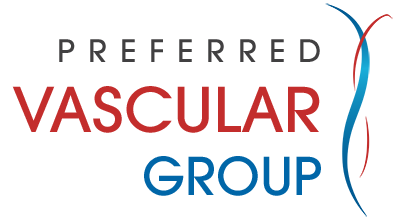What Are The Health Risks of High Blood Pressure?

According to the Centers for Disease Control and Prevention (CDC), nearly 68 million people in the US have high blood pressure. That’s why National High Blood Pressure Education Month is so important. High blood pressure, also called hypertension, can increase your risk of developing other serious health conditions. Managing your blood pressure is important for your overall health and can help you avoid these health risks of high blood pressure.
1. Heart Attack
One of the biggest health risks of high blood pressure is having a heart attack. High blood pressure damages the walls of the arteries, making it more likely that plaque deposits will develop. These plaque deposits can harden over time and narrow or block blood flow in the arteries. Plaque deposits may cause blood clots, which can also lead to blockages in the arteries. When the arteries are blocked, blood flow to the heart is cut off and a heart attack can occur.
2. Stroke
Another one of the biggest health risks of high blood pressure is stroke. Hypertension can damage blood vessels within the brain by causing hardened arteries, blood clots, or ruptured vessels. This cuts off blood flow to the brain. When the brain does not get enough oxygenated blood, brain cells die and it could lead to a stroke.
3. Kidney Disease or Failure
The kidneys can be damaged by uncontrolled high blood pressure. Kidney disease and kidney failure are two of the biggest health risks of high blood pressure. Damaged blood vessels in the kidneys prevent them from properly filtering waste from the blood. This allows dangerous amounts of fluid and waste to build up.
4. Sexual Dysfunction
Some men with high blood pressure have difficulty achieving or maintaining an erection, which is called erectile dysfunction. If high blood pressure blocks blood flow to the body, one of the parts of the body affected could be the penis. High blood pressure can also cause sexual dysfunction in women if there is a lack of blood flow to the vagina, which leads to a decrease in desire and arousal.
5. Angina
Angina is a term used to describe chest pain caused by your heart muscle not getting enough oxygenated blood. The heart may not get enough oxygen-rich blood due to arterial blockages caused by hypertension-related damage. Angina can feel like a squeezing pressure in the chest and it may also present as pain in the shoulders, neck, arms, jaw, or back.
6. Vision Loss
High blood pressure increases your risk of having vision problems. Your eyes are full of blood vessels that can be easily damaged by high blood pressure. Hypertension can also put pressure on the optic nerve, leading to vision loss.
7. Heart Failure
Another one of the major health risks of high blood pressure is heart failure. When you have high blood pressure, your heart has to work overtime to pump enough oxygenated blood to the rest of your body. Over time, this increased workload can lead to an enlarged heart. An enlarged heart will still pump blood but it is less efficient, meaning it still needs to work even harder and could eventually fail.
8. Aneurysms
Over time, hypertension weakens arteries. Then the high pressure of the blood flowing through a weakened artery can cause a part of the artery wall to bulge out. This is called an aneurysm. Aneurysms can rupture and cause internal bleeding that may be life-threatening.
9. Vascular Dementia
Vascular dementia is a type of dementia caused by damaged blood cells that impair blood flow to the brain. This causes cognitive difficulties like problems with memory, thinking, language, and behavior. According to the National Heart, Lung, and Blood Institute, vascular dementia is the second most common form of dementia, after Alzheimer’s disease.
10. Peripheral Artery Disease
Peripheral artery disease (PAD) is a disease in which the arteries that bring blood to the legs, stomach, arms, and head are narrowed or blocked. The most common cause of PAD is called atherosclerosis, which is a hardening of the arteries caused by cholesterol and scar tissue building up along the blood vessels. High blood pressure can be a contributing factor to atherosclerosis. Hypertension may also be associated with blood clots, another cause of PAD.
Preferred Vascular Group specializes in diagnosing and treating vascular conditions like PAD. We can help you come up with a plan to manage the effects of high blood pressure with lifestyle changes, medication, and minimally invasive procedures if needed.
If you would like to schedule an appointment at Preferred Vascular Group to have a consult with a board-certified physician or would like to have one of our highly-trained care providers reach out to you, please click on a button below:
